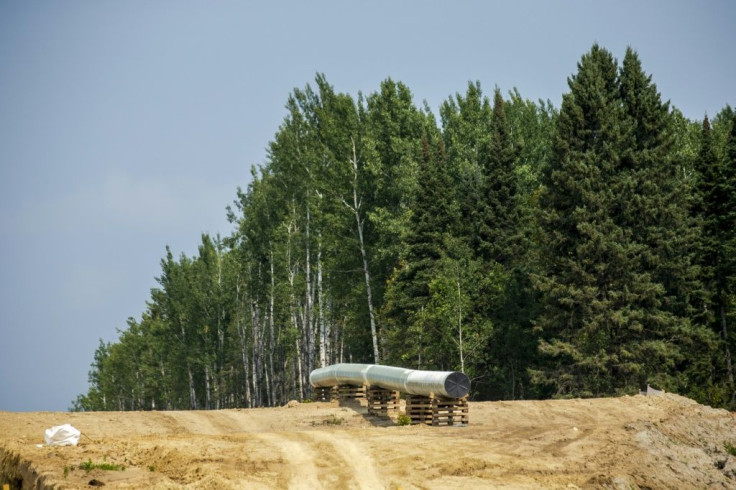New Line 3 Pipeline Ready To Move Oil From Canada To US: Enbridge
The replacement Line 3 pipeline -- the first new conduit from Canada's oil sands to US refineries built in years -- is "substantially completed" and will be ready to move oil starting Friday, Enbridge announced.
The Can$7.3 billion project had faced pushback from environmental activists and indigenous groups, but it was much less controversial than other proposed pipeline projects that failed to be green lit.
"With new state-of-the-art, thicker-walled pipe, its completion ensures a safe, reliable supply of North American crude oil to U.S. refineries, helping fuel the quality of life for millions of people," Enbridge said in a statement.
"We're thrilled" it'll start moving oil after "a long process" to get it built, with the first shipments likely early next week, Enbridge chief communications officer Mike Fernandez told AFP.
The 1,765-kilometre-long (1,097-mile) pipeline from Edmonton, Alberta to Superior, Wisconsin replaces a deteriorating pipeline built in the 1960s, and doubles its capacity to 760,000 barrels per day.
Opponents had argued the project would worsen climate change and increase risks of spills in waters where indigenous Americans harvest wild rice.
Hundreds of protestors were arrested or ticketed during its construction, while court challenges failed.
At the same time, Enbridge sought to enlist indigenous support by hiring from local tribes and pouring in hundreds of millions of dollars to support their communities.

In a statement, Enbridge noted that tribal monitors supervised construction of the pipeline, and in a first-of-its-kind survey Chippewa tribal cultural experts "walked the full route identifying and recording significant cultural resources to be avoided."
Pierre-Olivier Pineau, an energy expert at HEC Montreal business school said Line 3 "is the first project in a long time to boost Canada's oil export capacity."
In turn, he said, that could help Canadian producers "get a better price for their oil," which now sells at a discount because of landlocked Alberta's limited transportation access to world markets.
Canada is the world's fourth-largest oil producer, but proposals for new pipelines have faced increasing opposition and regulatory delays in recent decades amid the climate crisis.
Prime Minister Justin Trudeau approved the Line 3 project as well as the Trans Mountain pipeline from Alberta to the Pacific coast, which his government later bought to keep the construction project afloat.
His administration, however, rejected a third new pipeline across British Columbia's temperate rainforest, while US President Joe Biden cancelled permits for the Canada-US Keystone XL pipeline.
And the company behind a Canadian east-west pipeline from Alberta to Atlantic coast refineries and ports, that would have been the longest in North America, abandoned the project.
© Copyright AFP 2024. All rights reserved.











